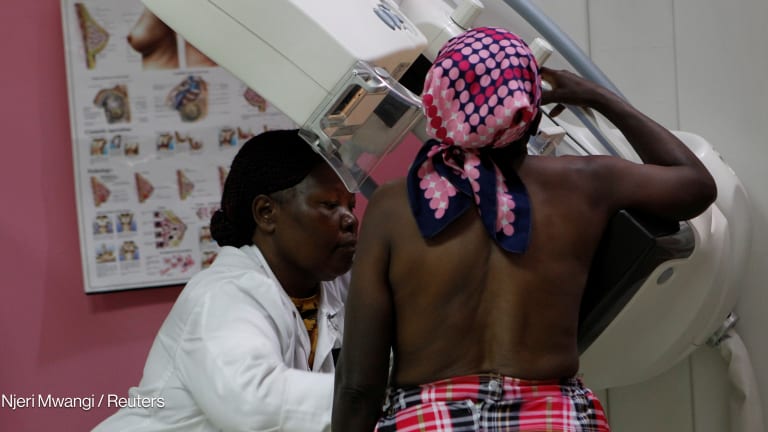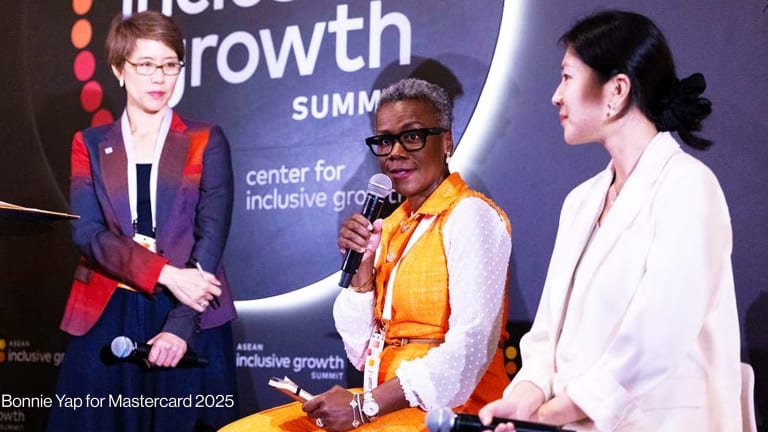Ranking good government: Does it apply to LMICs?
Wu Wei Neng, executive director at the Chandler Institute of Governance, discusses the challenges in global governance rankings and approaches in making rankings inclusive for diverse economies.
When it comes to good government, Rwanda is the highest ranked low-income country in 53rd place overall, scoring highest in the area of leadership and foresight. The 2021 Chandler good government index was released on April 26, providing insight into how 104 countries compare on governance with rankings based on seven indicators: leadership, laws, institutions, financial stewardship, marketplace, global influence, and helping people rise. But Rwanda is only one of nine low-income countries to be included. It is an index that is dominated by high-income countries, led by Finland. “We have worked hard to ensure that the index has the broadest and most comprehensive country coverage of any governance index,” Wu Wei Neng, executive director at the Chandler Institute of Governance, told Devex. “It currently accounts for nearly 90% of the world’s population. However, we could not rank every country in the world due to the limitations of data quality available.” <div class='tableauPlaceholder' id='viz1619596995533' style='position: relative'><noscript><a href='#'><img alt='Good government ' src='https://public.tableau.com/static/images/Go/Goodgovernment2021/Goodgovernment/1_rss.png' style='border: none' /></a></noscript><object class='tableauViz' style='display:none;'><param name='host_url' value='https%3A%2F%2Fpublic.tableau.com%2F' /> <param name='embed_code_version' value='3' /> <param name='site_root' value='' /><param name='name' value='Goodgovernment2021/Goodgovernment' /><param name='tabs' value='no' /><param name='toolbar' value='no' /><param name='static_image' value='https://public.tableau.com/static/images/Go/Goodgovernment2021/Goodgovernment/1.png' /> <param name='animate_transition' value='yes' /><param name='display_static_image' value='yes' /><param name='display_spinner' value='yes' /><param name='display_overlay' value='yes' /><param name='display_count' value='yes' /></object></div> <script type='text/javascript'> var divElement = document.getElementById('viz1619596995533'); var vizElement = divElement.getElementsByTagName('object')[0]; if ( divElement.offsetWidth > 800 ) { vizElement.style.width='650px';vizElement.style.height='800px';} else if ( divElement.offsetWidth > 500 ) { vizElement.style.width='650px';vizElement.style.height='800px';} else { vizElement.style.width='100%';vizElement.style.height='950px';} var scriptElement = document.createElement('script'); scriptElement.src = 'https://public.tableau.com/javascripts/api/viz_v1.js'; vizElement.parentNode.insertBefore(scriptElement, vizElement); </script> How do countries rank according to measures of good government? Source: 2021 Chandler Good Government Index The World Bank classifies 29 countries as low-income economies, and in creating the rankings, the index highlights the challenges of such comparison based on data quality standards from the global north — standards that are difficult to meet in countries where investment into data is limited. In a conversation with Devex, Weng discussed the challenges they face, and their approaches in supporting the index to become more inclusive for all economies. “We believe that all countries can benefit from a more capable and trusted government. We designed the index to be a practical tool, regardless of a nation’s income level, geography or political history.” --— Wu Wei Neng, executive director, Chandler Institute of Governance Who do you see as key stakeholders for the good government index? We designed the index specifically to be a practical tool for government leaders and civil servants to understand and benchmark their capabilities and performance, and to have honest conversations about opportunities for progress. We also hope the broader governance community of researchers, experts, and the media will find the rankings useful. Discussion in development at the moment surrounds the challenges of applying a global north approach or view on the global south. Are there diverse opinions globally on what "good governance" means, and are you considering different viewpoints as part of the rankings? It is important to have a way to measure good government that is practical, relevant, and focused on capabilities as much as outcomes. By focusing on state capabilities and performance, the index does not prioritize any form of government over another. The unique framework was developed through a series of interviews with government leaders and experts from around the world on the capabilities that are important to governments, regardless of their income level. How have low- and middle-income countries responded to rankings in the past? And how do you recommend they should view the rankings? We believe that all countries can benefit from a more capable and trusted government. We designed the index to be a practical tool, regardless of a nation’s income level, geography or political history. The index aims to support governments in understanding and benchmarking their capabilities and performance, allowing them to have honest conversations about opportunities for progress, and to focus on strengthening capabilities in key areas. How do economic considerations impact good governance? Do you think there could be benefits in having different ranking methodologies for different regions or economies? What we can see from the results is [that] there is indeed a strong correlation between governance performance and high-income status; good governance is a necessary foundation for prosperity. Financial resources provide governments with the means to build strong systems, remunerate civil servants fairly, and provide public services well. Talent, capital, investment, trust and prosperity are earned through good governance, and flow to countries that are well-governed. This is a virtuous cycle that supports national development. Our index avoids making comparisons between regions because all geographic regions in the world are incredibly diverse. Countries in the same region often have very different circumstances, contexts, and needs. However, we have purposefully designed our website to enable people to group countries based on geography, income level, gross domestic product, and population size if they would like to. We have also created a compare function, which enables people to easily look at the performance across the pillars for up to three countries, which enables effective peer benchmarking. Finally, we have created a tool that allows people to customize the index, so they can see what the results would be if they thought certain data points were more important than others, for example if “government debt” should have more weight than say, “attracting investments”. What are the benefits and weaknesses of your current ranking systems? What are your visions for future rankings? We believe the core capabilities and principles of good government will stand across editions. However, while we’re sure the framework will stand the test of time, we’re looking forward to being able to update indicators as and when new data points become available. Of course, we’d like to include more countries in our index in the future, when data availability makes this possible. We anticipate rankings will change year-to-year because there is certainly scope for change. Our current rankings do not capture the full impact of COVID-19 due to the varying release dates of these latest data sources. We are curious whether the differing national responses to the pandemic will contribute to significant changes in the rankings. We take a data-driven approach towards measuring governance, and the results will speak for themselves.
When it comes to good government, Rwanda is the highest ranked low-income country in 53rd place overall, scoring highest in the area of leadership and foresight. The 2021 Chandler good government index was released on April 26, providing insight into how 104 countries compare on governance with rankings based on seven indicators: leadership, laws, institutions, financial stewardship, marketplace, global influence, and helping people rise.
But Rwanda is only one of nine low-income countries to be included. It is an index that is dominated by high-income countries, led by Finland.
“We have worked hard to ensure that the index has the broadest and most comprehensive country coverage of any governance index,” Wu Wei Neng, executive director at the Chandler Institute of Governance, told Devex. “It currently accounts for nearly 90% of the world’s population. However, we could not rank every country in the world due to the limitations of data quality available.”
This story is forDevex Promembers
Unlock this story now with a 15-day free trial of Devex Pro.
With a Devex Pro subscription you'll get access to deeper analysis and exclusive insights from our reporters and analysts.
Start my free trialRequest a group subscription Printing articles to share with others is a breach of our terms and conditions and copyright policy. Please use the sharing options on the left side of the article. Devex Pro members may share up to 10 articles per month using the Pro share tool ( ).
Lisa Cornish is a former Devex Senior Reporter based in Canberra, where she focuses on the Australian aid community. Lisa has worked with News Corp Australia as a data journalist and has been published throughout Australia in the Daily Telegraph in Melbourne, Herald Sun in Melbourne, Courier-Mail in Brisbane, and online through news.com.au. Lisa additionally consults with Australian government providing data analytics, reporting and visualization services.








